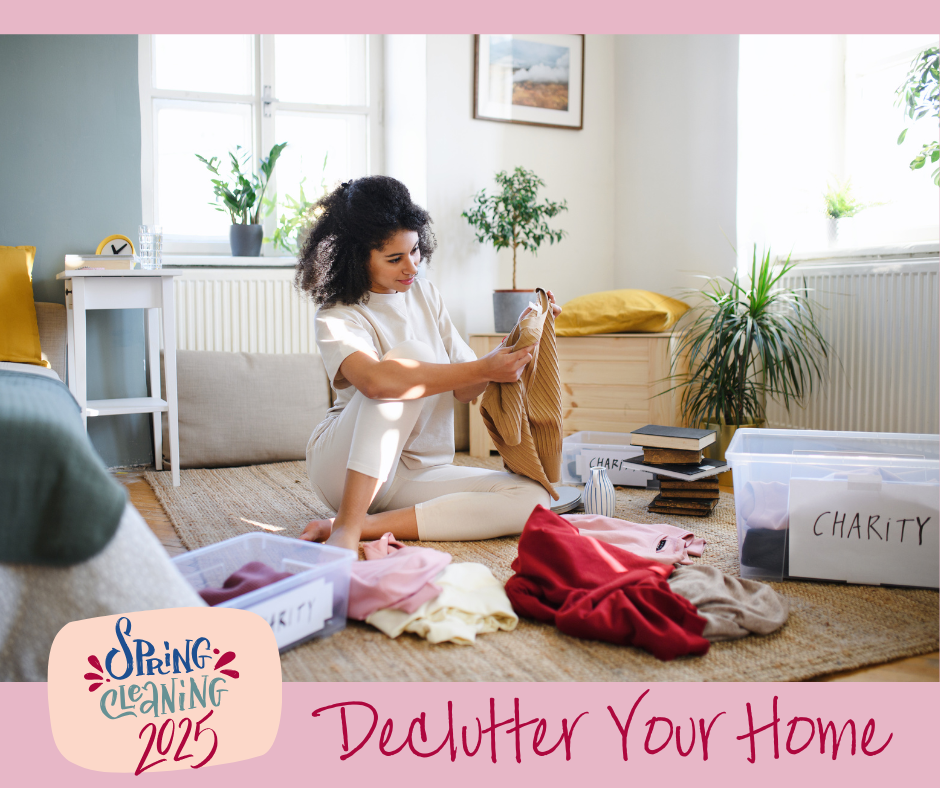The Psychology of Decluttering: Why Cleaning Makes You Happier

--- THE MENTAL LOAD OF CLUTTER ---
Clutter isn’t just physical—it’s mental. When we’re surrounded by too much stuff, our brains have a harder time focusing. Studies in neuroscience and psychology have shown that clutter overloads our senses and increases stress by creating a constant visual reminder of unfinished tasks.
A study from Princeton University Neuroscience Institute found that excess objects in our environment compete for attention, making it harder to concentrate and process information. Essentially, a cluttered space can lead to a cluttered mind. If you've ever felt anxious walking into a messy room, that's your brain reacting to the overload of stimuli.
--- DECLUTTERING & THE SCIENCE OF HAPPINESS ---
Cleaning up and organizing can lead to an immediate boost in happiness.
Here’s why:
---> Sense of Accomplishment: Completing a decluttering task triggers dopamine, the “reward” neurotransmitter, making us feel satisfied and motivated.
---> Reduced Stress & Anxiety: A tidy space promotes relaxation and lowers cortisol (the stress hormone), helping us feel more at ease.
---> Increased Productivity: With fewer distractions, our brains can focus better, leading to improved work performance and creativity.
---> Better Sleep: A clutter-free bedroom has been linked to improved sleep quality since our minds associate neatness with calmness.
--- THE EMOTIONAL ATTACHMENT TO CLUTTER ---
Many people struggle to let go of clutter because of emotional attachments. Items often carry memories, and we fear that getting rid of something means losing a part of our past. But decluttering doesn’t mean forgetting—it means prioritizing what truly matters.
A great way to reframe this is the Marie Kondo method, which encourages you to ask, "Does this spark joy?" If something no longer brings happiness or serves a purpose, it’s time to let it go.
**** How to Declutter for Happiness: A Step-by-Step Approach
---> Start Small – Tackle one space at a time, whether it's a single drawer, your desk, or a closet.
---> Use the 20/20 Rule – If an item costs less than $20 and can be replaced in under 20 minutes, it’s safe to donate or discard.
---> Try the "One-Year Rule" – If you haven’t used something in the past year, you probably don’t need it.
---> Create Designated Spaces – Organizing doesn’t mean shuffling things around; make sure everything has a hometo return to.
---> Make It Fun – Turn on music, set a timer, and celebrate your progress!
--- DECLUTTERING AS SELF CARE ---
At its core, decluttering is an act of self-care. It’s about clearing space for peace, joy, and new opportunities. When you tidy your environment, you’re also tidying your mental space, making room for clarity, creativity, and happiness.
So, if you're feeling overwhelmed, stressed, or simply need a fresh start, try decluttering your space—your mind will thank you for it!

